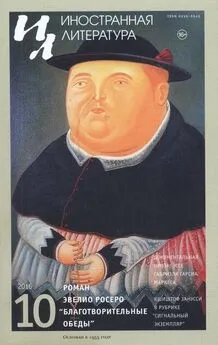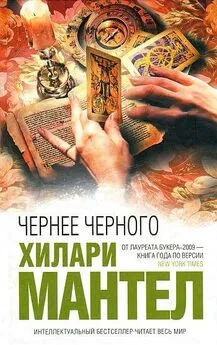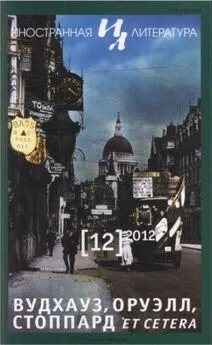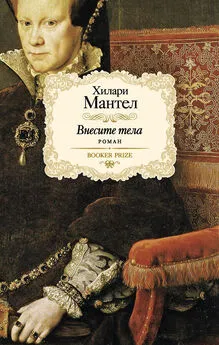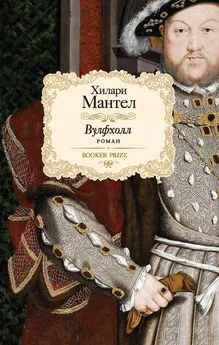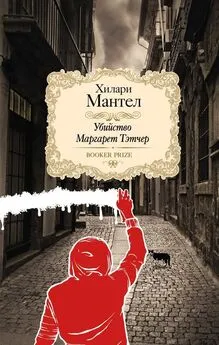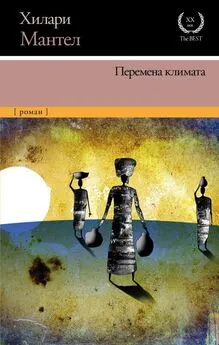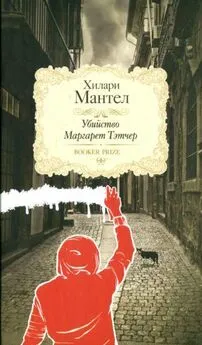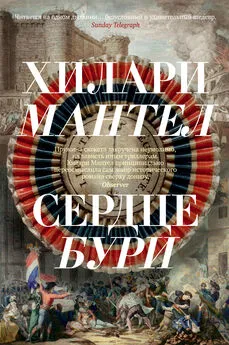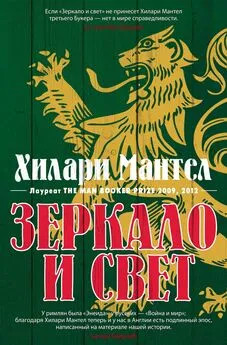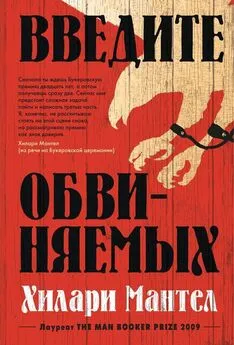Хилари Мантел - Год Шекспира
- Название:Год Шекспира
- Автор:
- Жанр:
- Издательство:Иностранная литература
- Год:2016
- Город:Москва
- ISBN:нет данных
- Рейтинг:
- Избранное:Добавить в избранное
-
Отзывы:
-
Ваша оценка:
Хилари Мантел - Год Шекспира краткое содержание
Рубрике задает тон трогательное и торжественное «Письмо Шекспиру» английской писательницы Хилари Мантел в переводе Тамары Казавчинской. Затем — новый перевод «Венеры и Адониса». Свою русскоязычную версию знаменитой поэмы предлагает вниманию читателей поэт Виктор Куллэ (1962). А филолог и прозаик Александр Жолковский (1937) пробует подобрать ключи к «Гамлету». Здесь же — интервью с английским актером, режиссером и театральным деятелем Кеннетом Браной (1960), известным постановкой «Гамлета» и многих других шекспировских пьес. Перевод Елены Малышевой. Завершает рубрику — глава из поэмы американского поэта Хаима Плуцика (1911–1962) «Горацио» в переводе Антона Нестерова. Вот что он пишет, среди прочего, в своем предисловии: «…в глазах датского двора и народа Дании Гамлет — всего лишь убийца законного властителя, а история, рассказанная Призраком, никому, кроме принца и Горацио, не известна. Свидетельство Горацио — последнее и единственное оправдание принца. И на этом Плуцик строит свою поэму».
Год Шекспира - читать онлайн бесплатно полную версию (весь текст целиком)
Интервал:
Закладка:
Never did passenger in summer’s heat
More thirst for drink, than she for this good turn.
Her help she sees, but help she cannot get;
She bathes in water, yet her fire must burn:
ʼO! pity’, gan she cry, ʼflint-hearted boy,
ʼTis but a kiss I beg; why art thou coy?
ʼI have been wooed as I entreat thee now,
Even by the stern and direful god of war,
Whose sinewy neck in battle ne’er did bow,
Who conquers where he comes in every jar,
Yet hath he been my captive, and my slave,
And begged for that which thou unasked shalt have.
ʼOver my altars hath he hung his lance,
His battered shield, his uncontrollèd crest,
And for my sake hath learned to sport, and dance,
To toy, to wanton, dally, smile, and jest,
Scorning his churlish drum and ensign red,
Making my arms his field, his tent my bed.
ʼThus he that over-ruled, I over-swayed,
Leading him prisoner in a red-rose chain.
Strong-tempered steel his stronger strength obeyed;
Yet was he servile to my coy disdain.
O be not proud, nor brag not of thy might,
For mastering her that foiled the God of fight.
ʼTouch but my lips with those fair lips of thine
(Though mine be not so fair, yet are they red),
The kiss shall be thine own as well as mine.
What seest thou in the ground? Hold up thy head,
Look in mine eye-balls, there thy beauty lies:
Then why not lips on lips, since eyes in eyes?
ʼArt thou ashamed to kiss? Then wink again,
And I will wink, so shall the day seem night.
Love keeps his revels where there are but twain;
Be bold to play; our sport is not in sight:
These blue-veined violets whereon we lean
Never can blab, nor know not what we mean.
ʼThe tender spring upon thy tempting lip
Shows thee unripe; yet mayst thou well be tasted.
Make use of time, let not advantage slip:
Beauty within itself should not be wasted,
Fair flowers that are not gathered in their prime
Rot, and consume themselves in little time.
ʼWere I hard-favoured, foul, or wrinkled old,
Ill-nurtured, crookèd, churlish, harsh in voice,
O’er-worn, despisèd, rheumatic, and cold,
Thick-sighted, barren, lean, and lacking juice;
Then mightst thou pause, for then I were not for thee,
But having no defects, why dost abhor me?
ʼThou canst not see one winkle in my brow,
Mine eyes are grey, and bright, and quick in turning.
My beauty as the spring doth yearly grow,
My flesh is soft, and plump, my marrow burning.
My smooth moist hand, were it with thy hand felt,
Would in thy palm dissolve, or seem to melt.
ʼBid me discourse, I will enchant thine ear,
Or like a fairy trip upon the green,
Or like a nymph, with long dishevelled hair,
Dance on the sands, and yet no footing seen.
Love is a spirit all compact of fire,
Not gross to sink, but light, and will aspire.
ʼWitness this primrose bank whereon I lie:
These forceless flowers like sturdy trees support me;
Two strengthless doves will draw me through the sky,
From morn till night, even where I list to sport me.
Is love so light, sweet boy, and may it be
That thou shouldst think it heavy unto thee?
ʼIs thine own heart to shine own face affected?
Can thy right hand seize love upon thy left?
Then woo thyself, be of thyself rejected:
Steal thine own freedom, and complain on theft.
Narcissus so himself himself forsook,
And died to kiss his shadow in the brook.
ʼTorches are made to light, jewels to wear,
Dainties to taste, fresh beauty for the use,
Herbs for their smell, and sappy plants to bear.
Things growing to themselves are growth’s abuse;
Seeds spring from seeds, and beauty breedeth beauty:
Thou wast begot: to get it is thy duty.
ʼUpon the earth’s increase why shouldst thou feed,
Unless the earth with thy increase be fed?
By law of nature thou art bound to breed,
That thine may live, when thou thyself art dead:
And so in spite of death thou dost survive,
In that thy likeness still is left alive.’
By this the love-sick Queen began to sweat,
For where they lay the shadow had forsook them,
And Titan, tirèd in the midday heat,
With burning eye did hotly overlook them,
Wishing Adonis had his team to guide,
So he were like him, and by Venus’ side.
And now Adonis with a lazy spright,
And with a heavy, dark, disliking eye,
His louring brows o’erwhelming his fair sight,
Like misty vapours when they blot the sky,
Souring his cheeks, cries, ʼFie, no more of love:
The sun doth burn my face, I must remove.’
ʼAy me’, quoth Venus, ʼYoung, and so unkind,
What bare excuses mak’st thou to be gone?
I’ll sigh celestial breath, whose gentle wind,
Shall cool the heat of this descending sun:
I’ll make a shadow for thee of my hairs;
If they burn too, I’ll quench them with my tears.
ʼThe sun that shines from heaven, shines but warm,
And, lo, I lie between that sun and thee:
The heat I have from thence doth little harm.
Thine eye darts forth the fire that burneth me,
And were I not immortal, life were done,
Between this heavenly and earthly sun.
ʼArt thou obdurate, flinty, hard as steel?
Nay more than flint, for stone at rain relenteth:
Art thou a woman’s son and canst not feel
What ’tis to love, how want of love tormenteth?
O had thy mother borne so hard a mind,
She had not brought forth thee, but died unkind.
ʼWhat am I that thou shouldst contemn me this?
Or what great danger dwells upon my suit?
What were thy lips the worse for one poor kiss?
Speak, fair, but speak fair words, or else be mute.
Give me one kiss, I’ll give it thee again,
And one for interest if thou wilt have twain.
ʼFie, lifeless picture, cold, and senseless stone,
Well-painted idol, image dull, and dead,
Statue contenting but the eye alone,
Thing like a man, but of no woman bred:
Thou art no man, though of a man’s complexion,
For men will kiss even by their own direction.’
This said, impatience chokes her pleading tongue,
And swelling passion doth provoke a pause.
Red cheeks, and fiery eyes blaze forth her wrong:
Being judge in love, she cannot right her cause.
And now she weeps, and now she fain would speak,
And now her sobs do her intendments break.
Sometimes she shakes her head, and then his hand;
Now gazeth she on him, now on the ground;
Sometimes her arms infold him like a band:
She would, he will not in her arms be bound.
And when from thence he struggles to be gone,
She locks her lily fingers one in one.
ʼFondling’, she saith, ʼSince I have hemmed thee here
Within the circuit of this ivory pale,
I’ll be a park, and thou shalt be my deer:
Feed where thou wilt, on mountain, or in dale;
Graze on my lips, and if those hills be dry,
Stray lower, where the pleasant fountains lie.
ʼWithin this limit is relief enough,
Sweet bottom grass, and high delightful plain,
Round rising hillocks, brakes obscure and rough,
To shelter thee from tempest, and from rain:
Then be my deer, since I am such a park.
No dog shall rouse thee, though a thousand bark.’
At this Adonis smiles as in disdain,
That in each cheek appears a pretty dimple;
Love made those hollows, if himself were slain,
He might be buried in a tomb so simple,
Foreknowing well, if there he came to lie,
Why there love lived, and there he could not die.
These lovely caves, these round enchanting pits,
Opened their mouths to swallow Venus’ liking:
Being mad before, how doth she now for wits?
Struck dead at first, what needs a second striking?
Poor Queen of love, in thine own law forlorn,
To love a cheek that smiles at thee in scorn.
Now which way shall she turn? What shall she say?
Her words are done, her woes the more increasing;
The time is spent, her object will away,
And from her twining arms doth urge releasing.
ʼPity’, she cries; ʼSome favour, some remorse.’
Away he springs, and hasteth to his horse.
But lo, from forth a copse that neighbours by
A breeding jennet, lusty, young, and proud
Adonis’ tramping courier doth espy,
And forth she rushes, snorts, and neighs aloud.
The strong-necked steed being tied unto a tree
Breaketh his rein, and to her straight goes he.
Imperiously he leaps, he neighs, he bounds,
And now his woven girths he breaks asunder.
The bearing earth with his hard hoof he wounds,
Whose hollow womb resounds like heaven’s thunder.
The iron bit he crusheth ’tween his teeth,
Controlling what he was controlled with.
His ears up-pricked; his braided hanging mane
Upon his compassed crest now stand on end.
His nostrils drink the air, and forth again,
As from a furnace, vapours doth he send.
His eye which scornfully glisters like fire
Shows his hot courage and his high desire.
Sometime he trots, as if he told the steps,
With gentle majesty, and modest pride;
Anon he rears upright, curvets and leaps,
As who should say ʼLo, thus my strength is tried.
And this I do to captivate the eye
Of the fair breeder that is standing by.’
What recketh he his rider’s angry stir,
His flatt’ring ʼHolla’, or his ʼStand, I say!’
What cares he now for curb or pricking spur,
For rich caparisons or trapping gay?
He sees his love, and nothing else he sees,
Nor nothing else with his proud sight agrees.
Look when a painter would surpass the life
In limning out a well-proportioned steed,
His art with nature’s workmanship at strife,
As if the dead the living should exceed:
So did this horse excel a common one
In shape, in courage, colour, pace and bone.
Round-hoofed, short-jointed, fetlocks shag and long,
Broad breast, full eye, small head, and nostril wide,
High crest, short ears, straight legs and passing strong,
Thin mane, thick tail, broad buttock, tender hide.
Look what a horse should have he did not lack,
Save a proud rider on so proud a back.
Sometimes he scuds far off, and there he stares;
Anon he starts at stirring of a feather;
To bid the wind a base he now prepares,
And whe’r he run or fly they know not whether:
For through his mane and tail the high wind sings,
Fanning the hairs, who wave like feather’d wings.
He looks upon his love, and neighs unto her.
She answers him as if she knew his mind.
Being proud, as females are, to see him woo her,
She puts on outward strangeness, seems unkind,
Spurns at his love, and scorns the heat he feels,
Beating his kind embracements with her heels.
Then, like a melancholy malcontent,
He vails his tail, that, like a falling plume
Cool shadow to his melting buttock lent.
He stamps, and bites the poor flies in his fume.
His love, perceiving how he is enraged,
Grew kinder, and his fury was assuaged.
Интервал:
Закладка:
